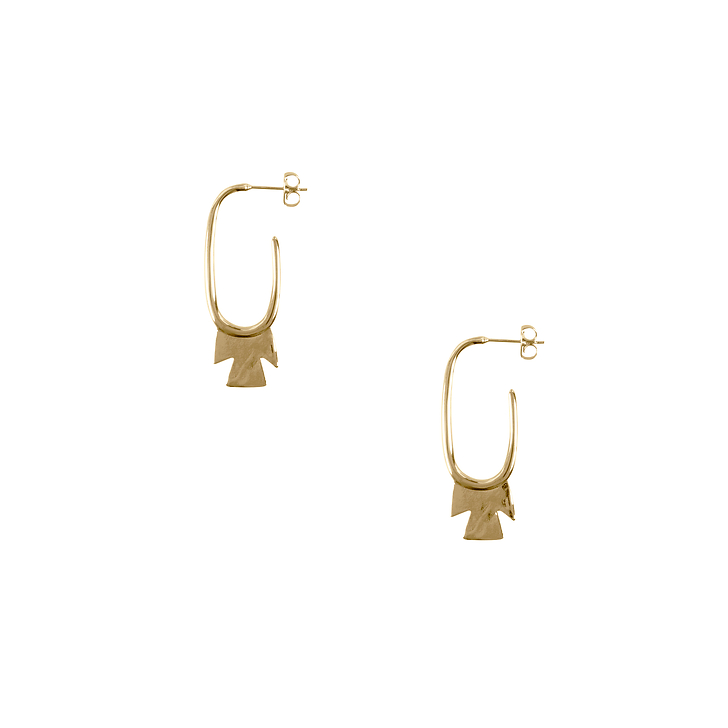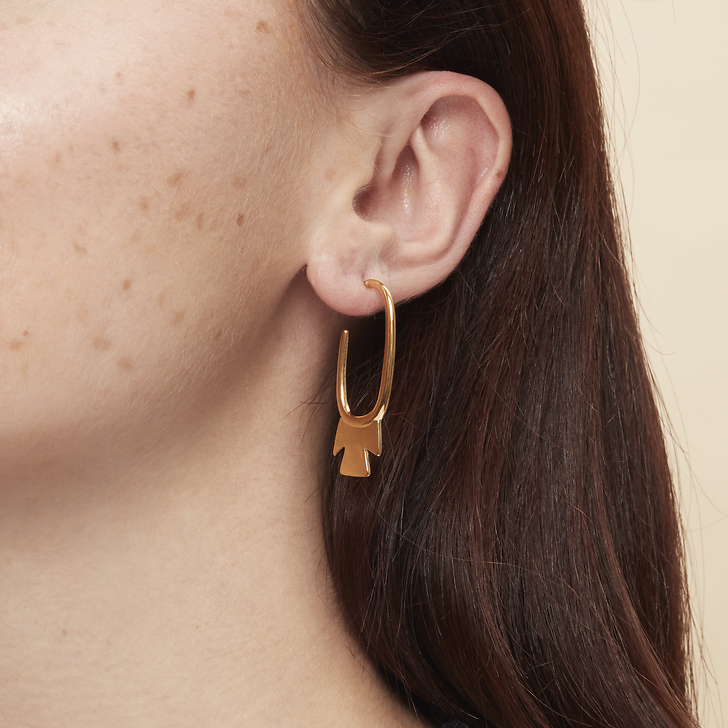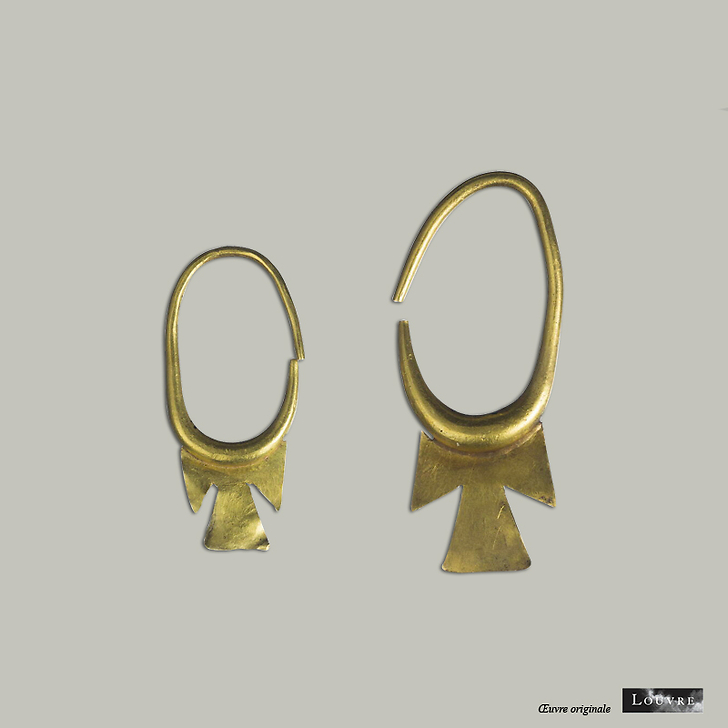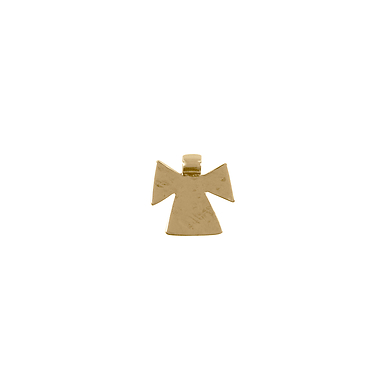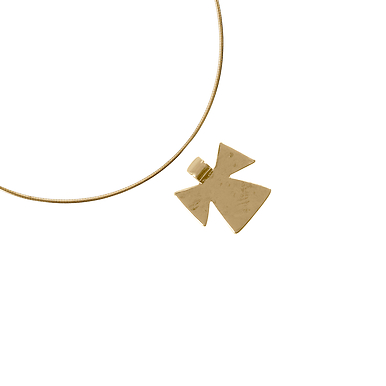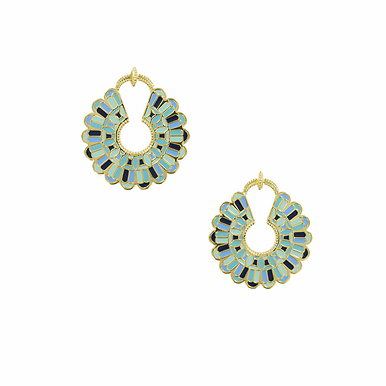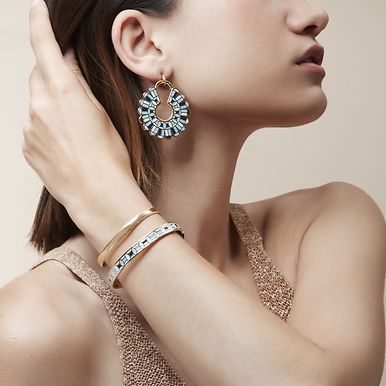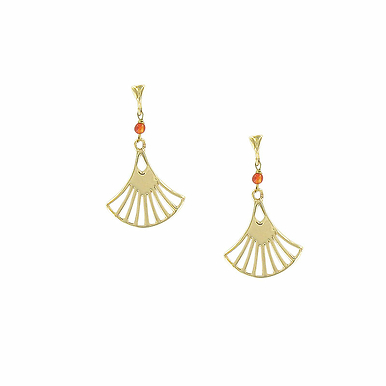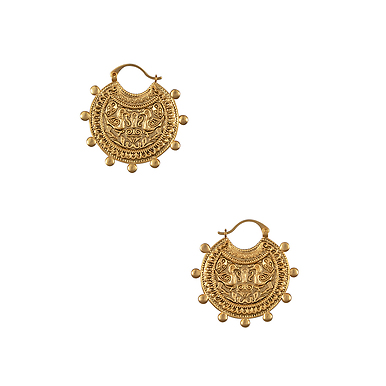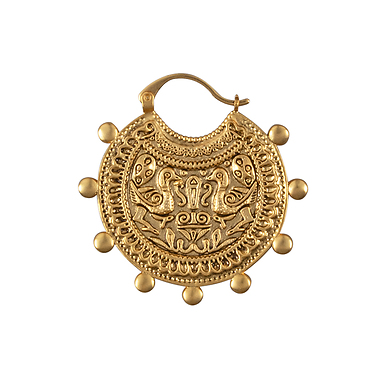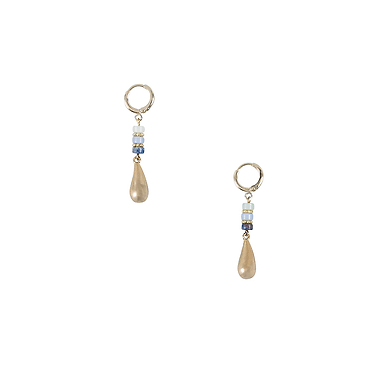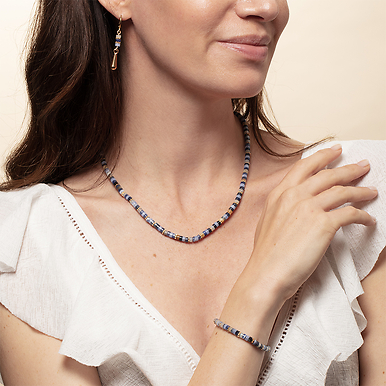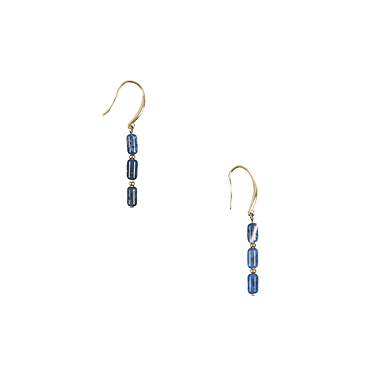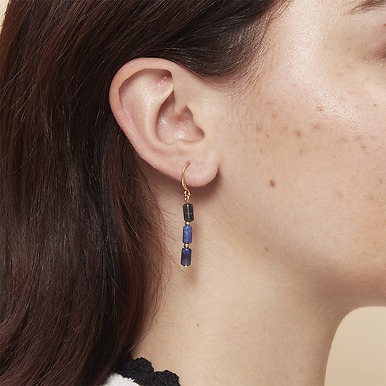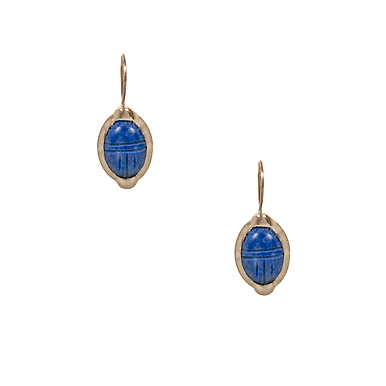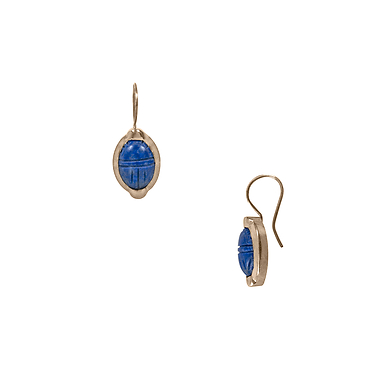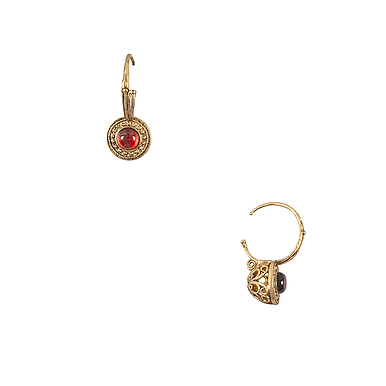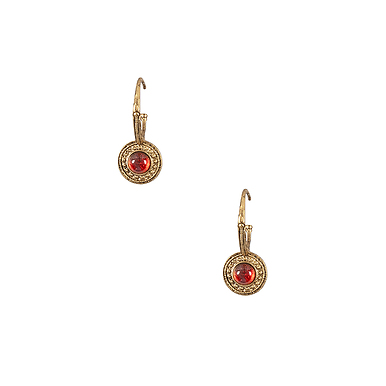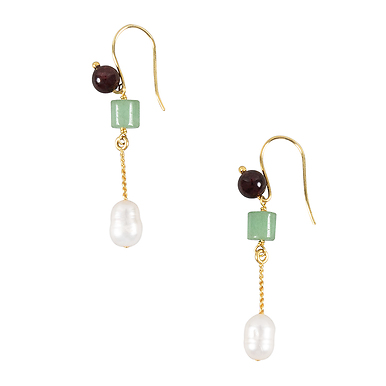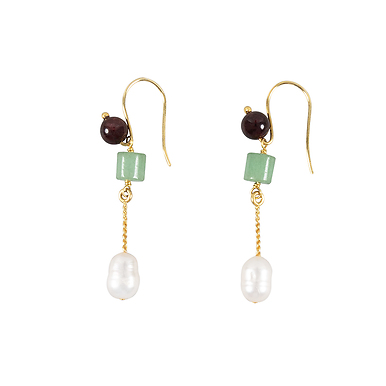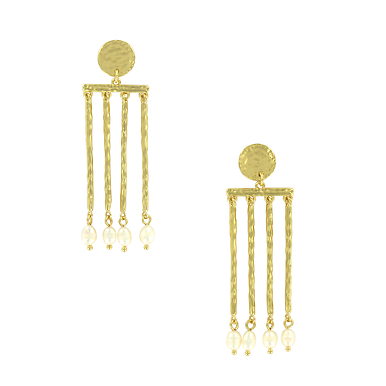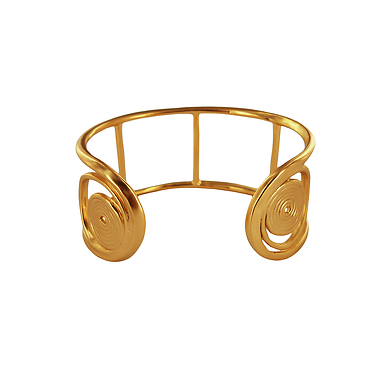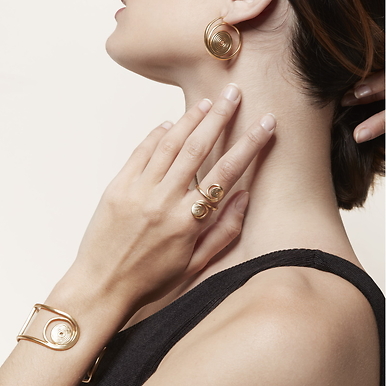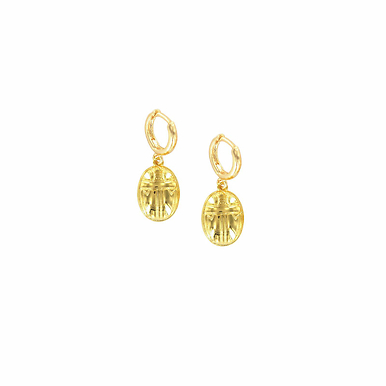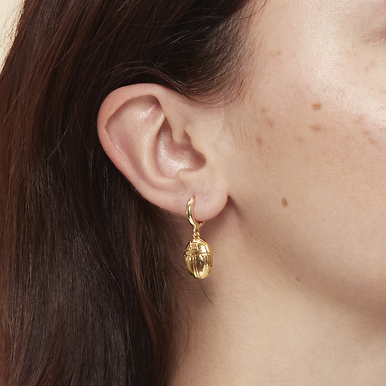Earrings Ankh Cross
BW400506
Ankh Cross-shaped earring - Carthage, Tunisia, 7th century - 6th century BC - Original in gold
Musée du Louvre, Department of Oriental Antiquities, Paris
According to legend, Carthage (Qart Hadasht, or 'New City') was founded in 814 BC by Elissa (Dido), sister of the king of Tyre.
The term Punic refers...
Read more
Ankh Cross-shaped earring - Carthage, Tunisia, 7th century - 6th century BC - Original in gold
Musée du Louvre, Department of Oriental Antiquities, Paris
According to legend, Carthage (Qart Hadasht, or 'New City') was founded in 814 BC by Elissa (Dido), sister of the king of Tyre.
The term Punic refers to a Phoenician civilisation established in the Western Mediterranean. The Punic people had strong connections with Levantine metropolises, but their culture was largely shaped by Libyan (Berber), Egyptian and Greek influences, as evidenced by the stelae, terracotta masks and jewellery produced in these lands.
This earring features an ankh (T-shaped cross surmounted by a loop), the Egyptian symbol of life.
Originating from the Syro-Palestinian coast, this type of silver or gold earring is well documented throughout the Mediterranean Basin. These pieces were mostly found in tombs-individually, in pairs or in the form of pendants on necklaces.
Gold plated brass
Close
Sold by GrandPalaisRmn

